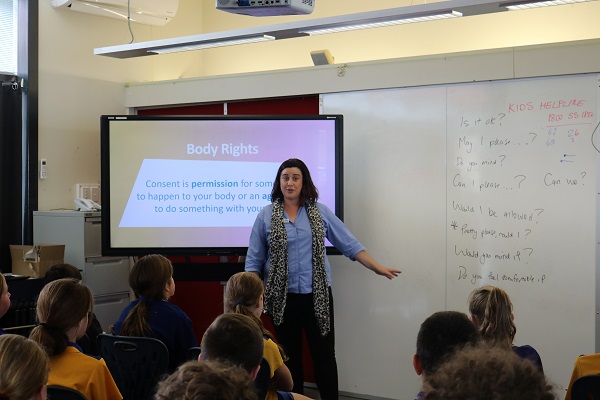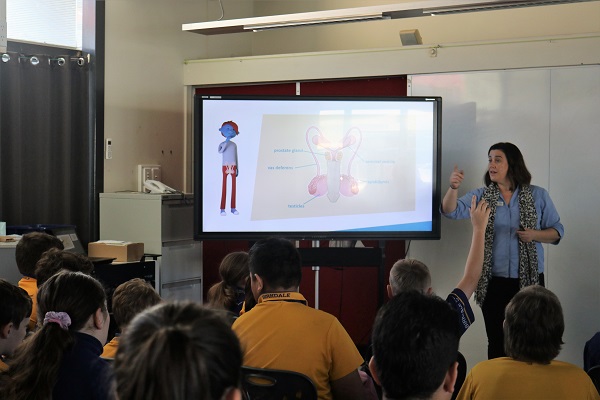“You can laugh and have fun while talking about puberty. It’s still respectful – you’re just normalising it,” said Sexual Health Educator, Narelle.
Narelle started her sexual health educator role at Life Education Queensland in 2016 and since then, has spent her days having open, honest conversations with pre-teens and teens. From previous careers in human resources, early childhood education, rites of passage, and more – Narelle brings with her a wealth of experience and enthusiasm to the classroom.
She describes a typical day as an educator for Life Education as, “energetic and hilarious”.
“I get to share the students’ experience of growing up and offer whatever support and guidance that I can,” said Narelle.
“Having honest conversations about puberty and relationships opens up the dialogue between students and safe adults.”
“There’s more of an understanding of the differences between sexes. Students show more respect to one another and there are fewer inappropriate comments made as they have more of an understanding what’s happening in one another’s body.”
Narelle’s role is specialised for the Life Education program, Talk About It, which is designed to help support students explore the concept of identity, develop safe and respectful relationships, and understand and manage the physical and emotional changes that occur during puberty.

As a mum, she understands just how important it is to have these conversations with children and teens as they develop.
“Children are naturally curious about their bodies at this age. We live in a highly sexualised world and if children have access to the internet – they are getting this information,” said Narelle.
“We want to make sure they are receiving correct factual information so they can make safe and informed choices.”
The module that Narelle believes resonates most with students is ‘Welcome to Puberty’ which is the foundation module of Talk About It.
“Students are starting to experience some of these changes, often you can see them having these ‘A-ha’ moments during the session,” said Narelle.
“They realise they are not alone and not the only person it has happened to. You can see their shoulders drop.”
“A big takeaway for many students is that it helps them understand their own bodies and how to put in tools and strategies to manage those changes.”
For Narelle, she believes what makes the Talk About It program so engaging for students is the highly relatable content.
The topical content matched with the variety of teaching materials, videos, informative presentations, group interactions and activities all cater to students with different learning styles.
Before the Talk About It program is delivered to students, educators hold parent information sessions to discuss content that is covered and help answer questions raised by families.

“Attend parent information sessions, read the suggested booklists, have a chat with your Life Education educator if you have any specific questions. They are more than happy to be available before and after the session,” said Narelle.
“Advice that I can offer parents and carers is start having these conversations with your children, and if you don’t feel comfortable or equipped, then call in the support of experts to be able to have those conversations rather than avoiding it altogether.”
“Be comfortable admitting discomfort and that you don’t have all the information – be prepared to find that information together. It’s ok to not know everything.”
Want to learn more about the Talk About It program available to students across Queensland? Visit here for more information.